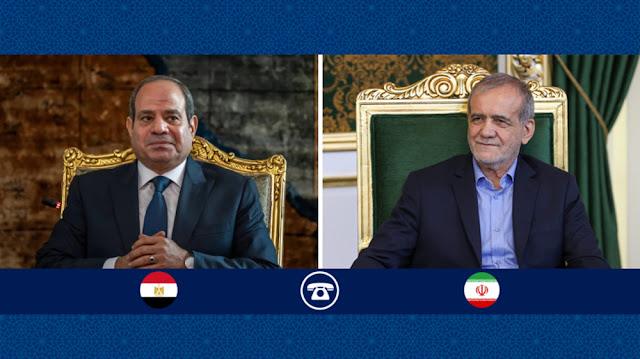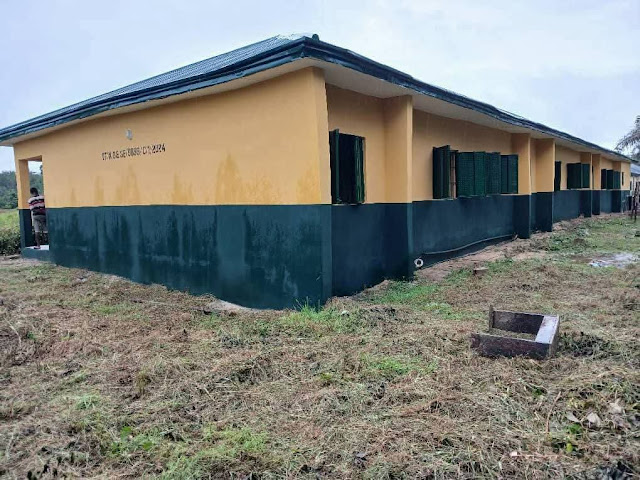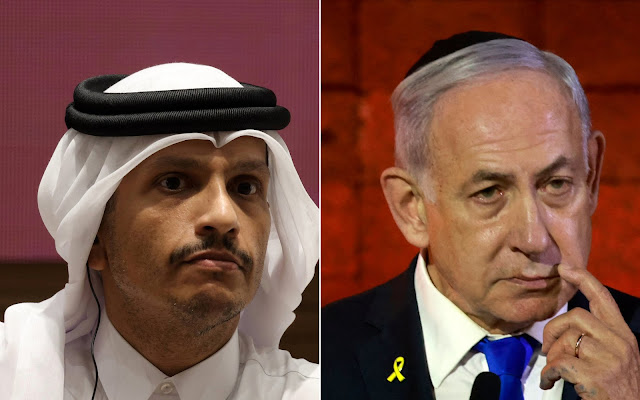In a significant diplomatic encounter on the sidelines of the 79th session of the United Nations General Assembly in New York, the foreign ministers of Iran and Egypt reiterated their shared commitment to opposing Israeli aggression and supporting the Palestinian cause. The meeting, which took place on September 11, 2025, underscored the growing alignment between Tehran and Cairo in addressing regional challenges posed by Israel’s actions, particularly in the occupied Palestinian territories and neighboring regions. This dialogue reflects a broader call for unity among Muslim nations to counter what both countries describe as Israel’s ongoing violations of international law and human rights.
A Historic Meeting in New York
The meeting between Iran’s Foreign Minister, Abbas Araghchi, and his Egyptian counterpart, Badr Abdel Aaty, marked a notable moment in the evolving relationship between the two nations. While Iran and Egypt have historically experienced strained relations, their shared concerns over Israeli policies have increasingly brought them closer together. During the discussions, both ministers emphasized the need for a collective response to Israel’s actions, which they characterized as aggressive and destabilizing to the region.
Araghchi articulated Iran’s unwavering support for the Palestinian people, condemning Israel’s actions as violations of international humanitarian law. He called for Muslim nations to unite in solidarity to address the ongoing crisis in Gaza and other occupied territories. Abdel Aaty echoed these sentiments, stressing Egypt’s commitment to the Palestinian cause and its rejection of Israel’s policies, which he described as undermining peace and stability in the region. The Egyptian minister also highlighted the importance of coordinated efforts among Muslim-majority countries to counter these challenges.
This meeting builds on a series of diplomatic engagements between Iran and Egypt in recent years, signaling a thaw in their historically complex relationship. The two countries severed formal diplomatic ties in 1980 following Egypt’s peace treaty with Israel and Iran’s Islamic Revolution. However, recent developments, including shared regional concerns and mutual interests, have prompted both nations to explore avenues for cooperation. The New York meeting is a testament to their willingness to bridge differences and work together on issues of mutual concern, particularly regarding Palestine.
The Context of Israeli Aggression
The discussions between Araghchi and Abdel Aaty come at a time of heightened tensions in the Middle East, driven by Israel’s ongoing military operations in Gaza, the West Bank, and southern Lebanon. Since the escalation of violence in October 2023, Israel’s actions have drawn widespread condemnation from the international community. Reports from human rights organizations indicate that thousands of Palestinian civilians, including women and children, have been killed or injured in Israeli airstrikes and ground operations in Gaza. The blockade of the Gaza Strip has exacerbated humanitarian conditions, leaving millions without access to basic necessities such as food, water, and medical supplies.
In the West Bank, Israeli settlement expansion and military raids have further inflamed tensions, with Palestinian communities facing displacement and violence. Meanwhile, Israel’s airstrikes in southern Lebanon, targeting alleged Hezbollah positions, have raised fears of a broader regional conflict. These actions have been widely criticized as violations of international law, including the Fourth Geneva Convention, which prohibits the targeting of civilians and the annexation of occupied territories.
Iran and Egypt, despite their differing political systems and historical rivalries, share a common stance on the Palestinian issue. Iran has long positioned itself as a staunch supporter of Palestinian resistance, providing political and material support to groups such as Hamas and Islamic Jihad. Egypt, while maintaining a more pragmatic approach due to its peace treaty with Israel, has consistently advocated for Palestinian statehood and an end to Israeli occupation. Cairo has also played a key role in mediating ceasefires between Israel and Palestinian factions, particularly in Gaza.
A Call for Muslim Unity
A central theme of the New York meeting was the call for unity among Muslim nations in response to Israeli aggression. Araghchi emphasized that the Palestinian cause is not only a regional issue but a matter of global justice that demands a collective response from the Muslim world. He argued that Israel’s actions threaten the stability of the entire region and undermine the principles of sovereignty and self-determination. By rallying Muslim nations around this cause, Iran seeks to strengthen its position as a leader in the resistance against what it perceives as Western-backed imperialism in the Middle East.
Abdel Aaty, for his part, underscored Egypt’s role as a mediator and advocate for peace in the region. He highlighted Cairo’s efforts to facilitate humanitarian aid to Gaza and its diplomatic initiatives to secure a lasting ceasefire. However, he also expressed frustration with Israel’s refusal to engage in meaningful negotiations and its continued violations of international agreements. The Egyptian minister called for a unified Muslim stance to pressure Israel into complying with international law and respecting Palestinian rights.
The call for Muslim unity is particularly significant given the fragmented state of the Muslim world, which is often divided along sectarian, political, and ideological lines. The Organization of Islamic Cooperation (OIC), which represents 57 Muslim-majority countries, has repeatedly condemned Israel’s actions but has struggled to translate its resolutions into concrete action. Iran and Egypt, as two of the most influential countries in the region, could play a pivotal role in galvanizing support for a more coordinated response.
Historical Context of Iran-Egypt Relations
To fully appreciate the significance of the New York meeting, it is essential to understand the historical context of Iran-Egypt relations. The two countries, both ancient civilizations with rich cultural and political legacies, have experienced a tumultuous relationship over the past century. During the reign of Iran’s Pahlavi dynasty and Egypt’s monarchy, the two nations maintained relatively cordial ties. However, the 1979 Islamic Revolution in Iran and Egypt’s signing of the Camp David Accords with Israel in 1978 fundamentally altered their relationship.
The Islamic Revolution, led by Ayatollah Ruhollah Khomeini, transformed Iran into a theocratic republic with an anti-imperialist and anti-Zionist ideology. Iran’s support for Palestinian resistance and its rejection of Israel’s legitimacy put it at odds with Egypt, which had become the first Arab nation to recognize Israel under the Camp David Accords. Egypt’s decision to host the exiled Shah of Iran further strained ties, leading to the severance of diplomatic relations in 1980.
For decades, Iran and Egypt remained distant, with occasional flare-ups of tension. Iran’s growing influence in the region, particularly through its support for Hezbollah in Lebanon and the Syrian government, was viewed with suspicion by Egypt, which prioritized stability and its strategic partnership with the United States. However, the Arab Spring uprisings of 2011 and the subsequent regional shifts prompted both countries to reassess their positions.
In recent years, Egypt’s concerns about Israel’s actions in Gaza and the West Bank, coupled with Iran’s efforts to expand its diplomatic outreach, have created opportunities for dialogue. The election of President Abdel Fattah el-Sisi in Egypt and the pragmatic foreign policy of Iran’s leadership under President Ebrahim Raisi have facilitated a gradual warming of ties. The New York meeting is a continuation of this trend, signaling a potential shift toward greater cooperation on regional issues.
Geopolitical Implications
The alignment between Iran and Egypt on the issue of Israeli aggression has significant geopolitical implications for the Middle East. For Iran, closer ties with Egypt could enhance its influence in the Arab world, which has traditionally been dominated by Saudi Arabia and other Gulf states. By forging a partnership with Cairo, Tehran could counterbalance the influence of its regional rivals and strengthen its position as a champion of the Palestinian cause.
For Egypt, cooperation with Iran offers an opportunity to bolster its role as a regional leader and mediator. Cairo has long sought to maintain a delicate balance between its commitments under the Camp David Accords and its support for Palestinian rights. By engaging with Iran, Egypt can signal its independence from Western powers and assert its influence in shaping the region’s future.
The broader Muslim world could also benefit from a unified stance against Israeli aggression. Countries such as Turkey, Qatar, and Jordan, which have also condemned Israel’s actions, could join Iran and Egypt in forming a coalition to advocate for Palestinian rights. Such a coalition could exert diplomatic pressure on the international community to address the root causes of the Israeli-Palestinian conflict, including the occupation and settlement expansion.
However, challenges remain in translating this call for unity into concrete action. The Muslim world is deeply divided, with countries such as Saudi Arabia and the United Arab Emirates pursuing normalization with Israel under the Abraham Accords. These divisions could undermine efforts to build a cohesive response to Israeli aggression. Moreover, the United States, a key ally of Israel, has consistently vetoed UN Security Council resolutions critical of Israeli policies, complicating international efforts to hold Israel accountable.
The Humanitarian Crisis in Gaza
The discussions in New York also highlighted the dire humanitarian situation in Gaza, which has been described as a “humanitarian catastrophe” by the United Nations and other international organizations. The blockade imposed by Israel, combined with repeated military operations, has devastated Gaza’s infrastructure, economy, and healthcare system. Over two million Palestinians live in what has been called an “open-air prison,” with limited access to clean water, electricity, and medical care.
Egypt has played a critical role in providing humanitarian aid to Gaza, facilitating the delivery of food, medicine, and other supplies through the Rafah crossing. However, these efforts have been hampered by Israel’s restrictions on the movement of goods and people. Iran, while not directly involved in humanitarian aid, has provided political and moral support to the Palestinian people, advocating for their right to resist occupation.
The foreign ministers’ meeting underscored the need for urgent international action to address the crisis in Gaza. Both Araghchi and Abdel Aaty called for an end to the blockade and the implementation of a comprehensive ceasefire to allow for the delivery of humanitarian aid and the reconstruction of Gaza. They also emphasized the importance of protecting Palestinian civilians and ensuring accountability for violations of international law.
The Role of the International Community
The Iran-Egypt dialogue in New York also highlighted the role of the international community in addressing the Israeli-Palestinian conflict. Both ministers criticized the failure of global powers to hold Israel accountable for its actions, pointing to the United States’ consistent support for Israel as a major obstacle to peace. They called for a renewed commitment to international law and the principles of the United Nations Charter, including the right to self-determination for the Palestinian people.
The United Nations General Assembly, where the meeting took place, has been a key platform for advocating Palestinian rights. Over the years, the General Assembly has passed numerous resolutions condemning Israel’s actions and calling for the establishment of a Palestinian state. However, these resolutions have often been ignored by Israel, which enjoys the backing of powerful allies such as the United States.
Iran and Egypt urged the international community to take concrete steps to address the conflict, including imposing sanctions on Israel for its violations of international law and supporting the recognition of a Palestinian state. They also called for greater cooperation among Muslim nations to amplify their voices on the global stage.
Looking Ahead
The meeting between the Iranian and Egyptian foreign ministers represents a significant step toward greater cooperation between two of the Middle East’s most influential nations. By reaffirming their commitment to opposing Israeli aggression and supporting the Palestinian cause, Iran and Egypt have sent a powerful message about the importance of Muslim unity in addressing regional challenges.
However, the path forward is fraught with challenges. The deep divisions within the Muslim world, coupled with the complex geopolitics of the Middle East, will require sustained diplomatic efforts to achieve meaningful progress. The international community’s reluctance to confront Israel’s actions head-on further complicates the situation.
Nevertheless, the New York meeting offers hope for a more coordinated and assertive response to the Israeli-Palestinian conflict. By building on their shared commitment to justice and solidarity, Iran and Egypt can play a leading role in shaping a future where the rights of the Palestinian people are respected, and the region moves closer to peace and stability.
In conclusion, the dialogue between Araghchi and Abdel Aaty underscores the enduring importance of the Palestinian cause and the need for collective action to address it. As the Middle East continues to grapple with conflict and instability, the call for Muslim unity and international accountability remains as urgent as ever. The world will be watching to see whether this moment of solidarity between Iran and Egypt can translate into tangible progress for the Palestinian people and the broader region.







